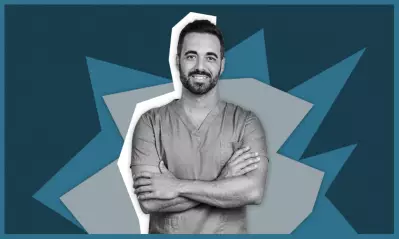Online nursing degrees
Make more of your nursing career
Our online nursing degree programs help you elevate from RN to prepare for new career opportunities. Learn the theory and practice of contemporary nursing and how to apply your skills to the quality and safety of patient care.
Let's get started
Program finder

Programmatic accreditation
The baccalaureate degree program in nursing, master’s degree program in nursing and Doctor of Nursing Practice program at °®¶ą´«Ă˝ are accredited by the , 655 K Street, NW, Suite 750, Washington, DC 20001, 202-887-6791.             Â
Why earn your nursing degree online with us?
Whether you’re interested in a Bachelor of Science in Nursing (BSN), Master of Science in Nursing (MSN) or Doctor of Nursing Practice (DNP), you can take one nursing degree online course at a time to help you balance real life and school life. You can also enroll in our Nursing Bridge Program, which is designed for RNs who have a bachelor’s degree in an unrelated field, to help working nurses more quickly earn their MSN — in turn, saving time and money.
Learn more about the online bachelor's,Ěýmaster'sĚý˛ą˛Ô»ĺĚýdoctoral nursing degrees at °®¶ą´«Ă˝.
Earn your RN to BSN degree faster
When you transfer 87 credits from your Associate Degree in Nursing (ADN) as part of the 3 + 1 Transfer Pathway Program, you can complete our Registered Nurse (RN) to Bachelor of Science in Nursing in as little as 14 months.
Affordable, fixed tuition Â
We’ve lowered tuition and locked it in for the duration of your online nursing degree program. So, you can count on your tuition to be as dependable as your education.
Earn career-relevant skills in weeks – not years
Get value from your education before you even graduate. Update your resumé and LinkedIn profile with learned skills when you complete every 5- or 6-week course in our associate, bachelor's and master's programs.

Meet your college deans
Our college deans focus on developing a career-relevant curriculum. They bring industry experience to the classroom and lead a faculty of academic professionals with one goal in mind—to help you earn the skills you need to pursue your career.

Raelene Brooks, PhD, RN
Dean, College of Nursing

Patrick LaRose, DNP, RN
Associate Dean of Undergraduate and Doctoral Studies,ĚýCollege of Nursing

Linnea Axman, DNP, DrPH, RN
Associate Dean of Graduate Programs, College of Nursing
Frequently asked questions
There are multiple types of nurses including Certified Nursing Assistants (CNAs), Licensed Practical Nurses (LPNs), and Registered Nurses (RNs). All have various specialties and require different training and licensing for their specific fields.Â
RNs are professional nurses who have direct responsibility for patients within medical practice supervision. They perform patient assessment, develop nursing diagnoses, create plans of care, implement the care plan, and continuously evaluate the patient’s response to the plan.Â
After becoming an RN, some decide to further their education. That’s where the °®¶ą´«Ă˝ comes in.Â
We offer various levels of advanced nursing degrees for a student with an RN:
- Two RN to Bachelor of Science in Nursing programs, one being competency-based
- Master of Science in Nursing (MSN) with four concentrations to choose from
- Post Master’s Certificate programs for administrators and educatorsÂ
- Doctor of Nursing Practice (DNP)
While widely available, not all nursing degree programs or courses are available in all locations. Please check with a University enrollment representative.
Here’s how long it can take to complete post-licensure, graduate and doctoral programs for RNs (with active and unencumbered licenses):
- Bachelor of Science in Nursing (RN-BSN)
- Registered Nurse (RN) to Bachelor of Science in Nursing (BSN): approximately 14 months when you transfer your ADN
- Master of Science in Nursing (MSN)
- Master of Science in Nursing/Family Nurse Practitioner (MSN/FNP): approximately 2.5 years
- Master of Science in Nursing with a concentration in Nurse Administration (MSN/ADM): approximately 21 months
- Master of Science in Nursing with a concentration in Nurse Education (MSN/NED): approximately 21 months
- Master of Science in Nursing with a concentration in Informatics (MSN/INF): approximately 21 months
- Post Master’s Graduate Certificates
- Post Master’s Nursing Administrators Certificate: approximately 9 months
- Post Master’s Nursing Educators Certificate: approximately 9 months
- Doctor of Nursing Practice (DNP): approximately 2 years
Yes! You can take all our nursing programs online.
There are a lot of helpful and informative nursing resources for potential students. Here are just a few:Â
- National League for Nursing
- American Nurses Credentialing Center
Nurses with advanced degrees can contribute in innovative ways. They can also be educationally prepared to pursue new opportunities in the areas of leadership, systems thinking, evidence-based practice, health policy and teamwork.
Interested in pursuing a degree?
*While widely available, not all programs are available to residents of all states. Please check with a University Enrollment Representative.




